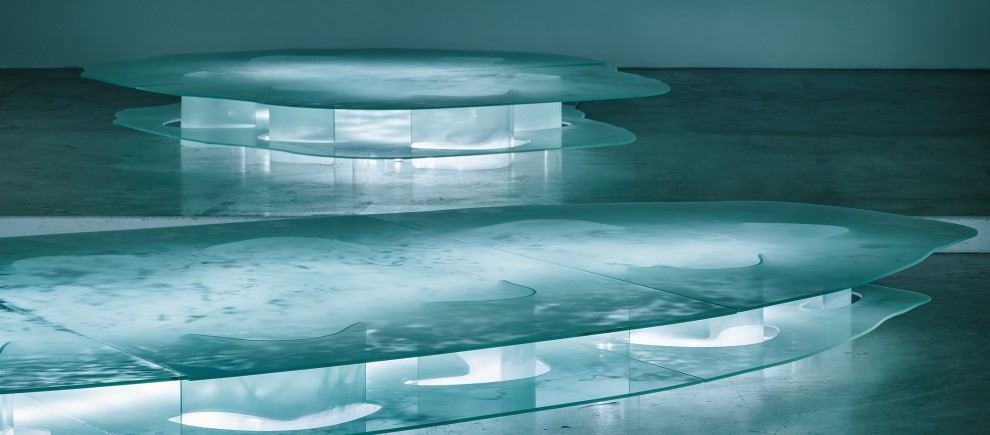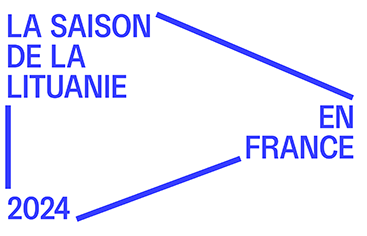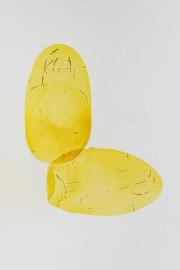Exhibitions

Marija Olsauskaite The Softest Hard *
25.10.2024 > 16.03.2025
Event organised as part of the Lithuanian Season in France 2024

The Softest Hard by artist Marija Olšauskaitė (b. 1989, Vilnius) presents several glass works in the Project Room on the 2nd floor of Carré d’Art, an oscillation between the traditions of craft and ornament and the social role of sculpture.
Marija Olšauskaitė is an artist born and based in Vilnius. She uses a variety of collaborative modes and explores themes of relationships, openness, intimacy and belonging. This exhibition focuses on her long affinity with glass. She creates forms that always seem to be in a state of transformation, using both conventional and more contemporary materials such as silicone.
The glass screens produced for this exhibition also refer to domestic space, to what can be made visible, to the fragility of relationships. Ponds is a set of large horizontal glass sculptures. Glass production usually requires a light table to discern imperfections. In this case, the relationship between form and function is rethought, with forms becoming impractical and the instrument transformed into a mysterious object reminiscent of a luminous, translucent block of ice.
In many of her works, there is a direct reference to Lithuania’s once flourishing glass production. The artist continues to work with glassmakers from companies that are still active. She recovered colored glass plates from the Raudonoji Ausra company, which was active until the 1990s and used to make stained glass. Workers had smuggled them out of the factory, enabling her to buy and collect them as well as give them a new lease of life. They are featured in the series of glass screens Never Act in Haste.
Marija Olšauskaité’s sculptures seem to have a life of their own, passing through a random alchemical process from liquid to solid state. These forms, which can sometimes seem to come straight from the future, are objects that question the sensations we can feel in front of them, and force us to think about how we share them. As she puts it, all the objects in the exhibition are twins, brothers or sisters in a family dynamic. They are in dialogue with each other.
Presented at the same time as the Aleksandra Kasuba exhibition, Marija Olšauskaité’s works continue the ideas of her elder sister, who conceived architecture as a means of thinking about and reinventing human relationships, affirming the social role of architecture and art.
Project Room 2nd Floor








